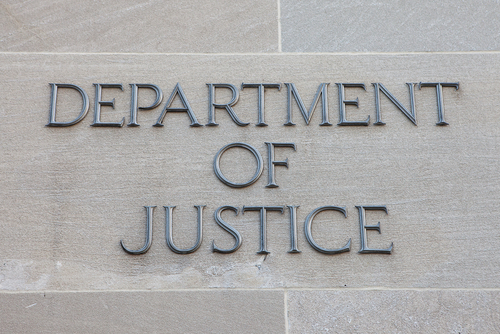Americans who demanded truth about Epstein’s “client list” are left empty-handed as the DOJ and FBI officially close their investigation—without delivering the transparency or accountability that the public has been screaming for, fueling suspicions that the powerful always get a pass.
DOJ and FBI Slam the Door Shut on Epstein Files—Public Trust Takes Another Hit
The Department of Justice and the FBI have officially declared the Epstein investigation closed, claiming after reviewing 300 gigabytes of material, there is no evidence of a secret “client list” or any new criminal activity involving uncharged third parties. According to their latest memo, Epstein’s 2019 death was a suicide, confirmed by enhanced video footage showing no one entered his cell the night he died. For Americans who have watched politicians, celebrities, and business leaders skate by without consequence for decades, this announcement is more salt in the wound. The agencies say most Epstein-related files will remain sealed by court order, justifying their secrecy with supposed privacy concerns and the risk of exposing innocent individuals to unsubstantiated allegations. If you’re keeping score at home, that’s “nothing to see here, move along”—again.
Attorney General Pam Bondi and FBI Director Kash Patel, both Trump appointees who once promised transparency and accountability, now parrot the line that there’s “nothing further to share” with the public. Bondi claims that earlier references to a “client list” were simply about the entire case file, not any list of co-conspirators. Patel, who previously fanned the flames of speculation, now insists the review was exhaustive and found no new criminality. Dan Bongino, who made a career out of suggesting a cover-up, has also changed his tune, backing the DOJ’s statement. The reversal by these high-profile figures, who once rode populist outrage, has not gone unnoticed. In the eyes of millions of Americans, it reeks of the kind of establishment protection racket that has driven public trust in government to historic lows.
Political Fallout: Skepticism and Outrage on the Right
Republican lawmakers and conservative commentators are not buying it. Senator Marsha Blackburn, who has been beating the drum for full disclosure, called the DOJ’s findings “an insult to every American who believes in equal justice under the law.” The decision to keep most files sealed, citing privacy and the risk of unsubstantiated allegations, is being seen by critics as a transparent effort to shield the rich and powerful—exactly the sort of move that has turned “Epstein didn’t kill himself” into a meme and rallying cry. Victims and survivors remain divided, with some demanding full transparency and others reluctant to see their stories weaponized in the media circus. Across social media and in conservative media circles, the consensus is clear: the government’s refusal to shine light into the darkest corners of the Epstein saga only deepens public suspicion that there’s something to hide.
This is not just about Epstein. It’s about a pattern of government secrecy and selective prosecution that leaves regular Americans with a sinking feeling that the system is rigged. The DOJ’s insistence that no further disclosures are appropriate because of “privacy” and “due process” rings hollow for those who have watched whistleblowers, journalists, and political opponents get dragged through the mud while the politically connected enjoy permanent immunity. The closure of the Epstein case—after years of speculation, with no high-profile arrests and no new names—may set a precedent for how future scandals involving the elite are swept under the rug, all in the name of “protecting the innocent.”
Conspiracy Theories and the Erosion of Trust
Rather than putting conspiracy theories to rest, the DOJ’s final word is likely to entrench them further. For many on the right, the refusal to release the full Epstein case files—and the sudden about-face by officials who once promised the opposite—fits a familiar pattern of government stonewalling. The Miami Herald’s Julie Brown, whose reporting reignited national interest in Epstein’s crimes, argues that claims about a “client list” are more fantasy than fact, amplified by opportunists for personal gain. But even mainstream media, while reporting the lack of new evidence, can’t ignore the public’s hunger for answers and the government’s long history of protecting its own. Academic and legal experts warn that publicizing unverified allegations could be unfair, but for those who have seen the rules bent and broken to suit the powerful, those warnings sound more like excuses.
The Epstein case is now officially closed, but the sense of injustice and suspicion lingers. The DOJ and FBI may be satisfied, but for millions of frustrated Americans, this story is just another chapter in the long-running saga of government overreach, elite impunity, and a justice system that only works for those with the right connections. As the files remain locked away and the questions pile up, one thing is certain: the American people aren’t done demanding answers, even if the government is done pretending to look for them.
Sources:
Attorney General Pamela Bondi Release

